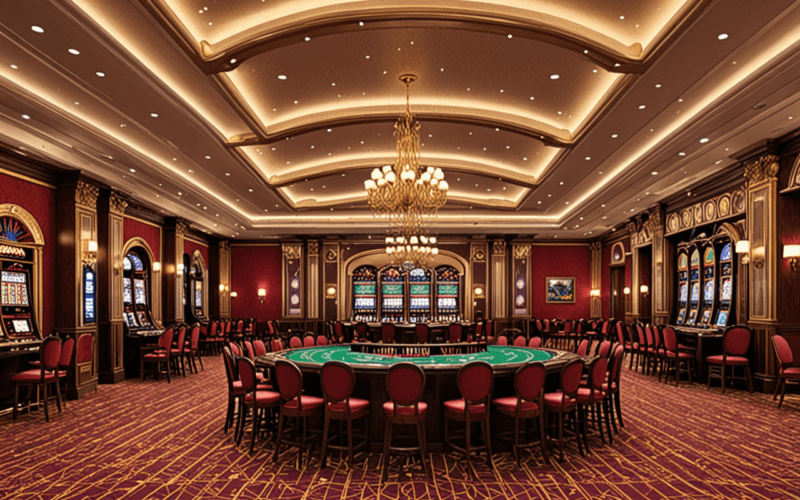- Key takeaway one: The Swedish government proposes to shut down Casino Cosmopol in Stockholm, marking the end of state-owned casinos in Sweden.
- Key takeaway two: This decision follows a trend of declining profitability and visitor numbers, influenced by the rise of online gambling.
- Key takeaway three: Despite the closure, the allure of casino tourism remains strong in global destinations, suggesting a potential path for the future of land-based casinos.
The Swedish government's recent announcement to close down Casino Cosmopol, the last state-owned casino in the heart of Stockholm, has sent ripples through the gambling and tourism sectors. After over two decades of operation, this decision underscores a significant shift in the gambling industry, reflective of broader trends impacting entertainment and leisure businesses worldwide.
A Changing Landscape
The memorandum from the Swedish government details proposals for legal changes that would see the discontinuation of Casino Cosmopol by January 1, 2026. This move is grounded in the casino's struggles with profitability—a challenge not unique to Casino Cosmopol but symptomatic of the global shift toward online gambling. Svenska Spel, the state-owned entity overseeing Sweden's regulated gambling market, echoes the government's sentiment, citing unfavorable business conditions and a bleak outlook for profitability as primary factors for the closure.
This decision does not come as a surprise. The gambling industry has been undergoing a digital transformation, with online platforms becoming increasingly popular due to their convenience and the wide array of options they offer. Casino Cosmopol's closure follows the shutdown of its sister establishments in Sundsvall, Gothenburg, and Malmö, further signaling the end of an era for Sweden's land-based casino scene.
The Digital Shift
Erik Strand, CEO of Svenska Spel, draws parallels between the decline of land-based casinos and other industries disrupted by digital innovation. Similar to how streaming services have overtaken physical cinemas and online shopping has challenged traditional retail, online gambling platforms offer a level of accessibility and variety that brick-and-mortar casinos struggle to match.
However, it's not all doom and gloom for the casino industry. Strand points out that casino tourism in destinations like Las Vegas, Monte Carlo, and Macau continues to thrive. These places offer more than just gambling; they provide a comprehensive entertainment experience, combining luxury accommodation, shopping, dining, and gambling in a way that online platforms cannot replicate.
Looking Ahead
The closure of Casino Cosmopol signifies a pivotal moment for the gambling industry in Sweden. While it marks the end of the state-owned casino era, it also highlights the ongoing shift towards online gambling—a trend that shows no signs of slowing down. However, the continued success of casino tourism in other parts of the world suggests that there may still be a place for land-based casinos, provided they can offer a unique and comprehensive experience that distinguishes them from their online counterparts.
For Sweden and Casino Cosmopol, the future might involve transitioning towards offering more than just gambling. Perhaps by adopting the model of casino resorts seen in other parts of the world, they could create a new type of entertainment experience that appeals to both domestic and international visitors. Only time will tell how the industry will adapt, but one thing is clear: the landscape of gambling and entertainment continues to evolve, driven by technological advancements and changing consumer preferences.








